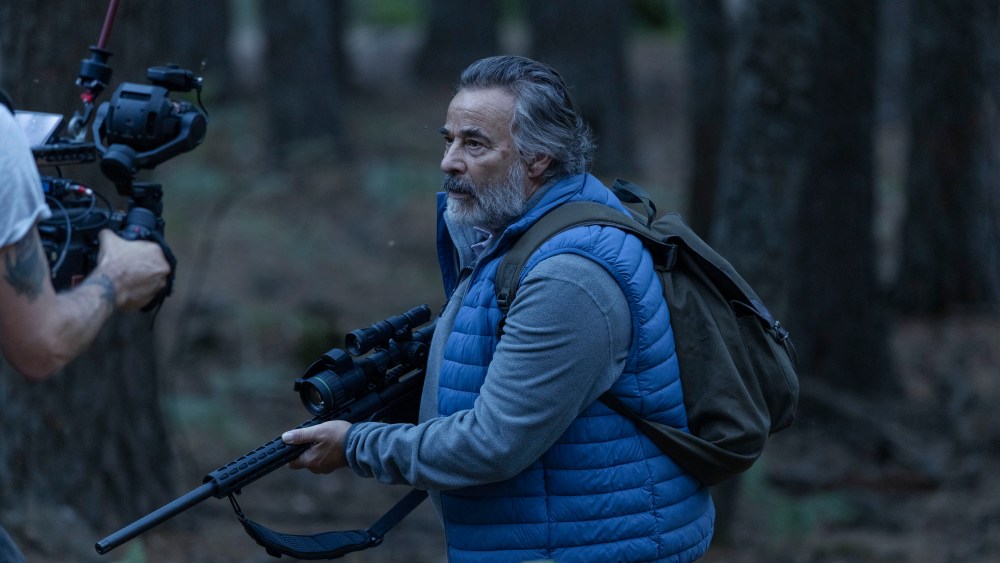The numbers are in. Serielizados, the vibrant Barcelona on site/online TV festival saw in-person attendees soar 80% to 16,000 over Nov. 3-12. Running Nov. 13-23, its online version, hosted by upscale SVOD service Filmin, hit 194,000 viewers. That makes Serielizados, after San Sebastián, the second most-watched film-TV festival in Spain, its organizers announced Tuesday.
“In this 12th edition we’ve made the definitive leap to becoming the most important series festival in the country, growing both in number of viewers and in content, with over 35 premiere series and with an international congress for professionals, Serielizados Pro, that further positions the festival as a driving force in the Spanish series industry,” Serielizados co-director Betu Molero stated Tuesday.
Serielizados attendance also frames a paradox. Launching in 2014, Serielizados, won last year by Sweden’s “Pressure Point,” has carved out a reputation for exquisite taste. The lineup of 2025’s festival also featured a masterclass by Alan Ball, 20 years after “Six Foot Under,” “The Danish Woman” and a masterclass by its creator Benedikt Erlingsson, “Reykjavik Fusion” and “Nepobaby,” plus a screening of Sally Wainwright’s BBC One series “Riot Women.”
Serielizados Pro proved equally popular generating a high-quality debate blessed by a large Nordic presence, with executives from SVT, DR and YLE, plus also reps from BBC Studios, Arte France, Germany’s Beta Film and Paris-based Slot Machine.
Speakers also took in a cream of Barcelona producers – notably nearly all women – plus reps from TV operators Movistar Plus+, 3Cat, RTVE, Atresmedia and Filmin.
Well, who wouldn’t want some Barcelona sun in November? There were other reasons, however, for the top-notch industry presence. If this year’s Serielizados Pro delivered a message, it was that Europe – and Canada – still turns out series of the highest-caliber but that its industry needs to connect, which it did in Barcelona.
That’s because of the sobering state of the international TV industry. Symbolically, Serelizados Pro, which took place Nov. 6, began not with sun but a near biblical torrential downpour.
Following, a few takeaways:
What Serelizados PRO Debate Said About the State of the International TV Industry
The short answer was that, yes, the industry is in a state. “Almost 18 months after we first identified the trend, we are still at ’75% Peak TV.’ In other words, the market has contracted to 75% of its Peak TV size,” Ampere Analysis’ Guy Bisson said at October’s Cannes trade fair Mipcom. Much of the downturn is driven by streamer pull back, down over 100% on early 2024 original series commissions, he added. Add to that multiple more factors, sketched at Serielizados Pro. For one, production costs have rocketed. Also, “streamers have great libraries, windows are getting much shorter, and they are not so insistent on exclusivity and open to selling their own content. MGM is selling Amazon, That makes normal distribution much more difficult,” Beta Film’s Christian Glockel said at Serielizados. The grand issue debated at Serielizados is how players can react.
What Buyers Want
One reaction: Players are playing it safe. “Everyone is feeling the pressure and therefore are backing shows that they know will be successful for them,” said BBC Studios’ Rebecca Ransley. What buyers want is crime, whether “cosy crime” or “where you lean back in shock,” she added. “Returnable crime series with talent attached” are also plus points, said Ransley, citing “Death Valley,” starring Timothy Spall, sold to 100 markets. “There’s definitely been a resurgence in an appetite for hyper-local authentic storytelling that reaches globally,” she went on, calling it the “‘Adolescence’ effect.”
Also, there’s demand for uplifting entertainment, Gockel argued. “The world’s a mess, a litany of bad news. ‘Maxima’ is about how a young woman becomes a princess, then a queen. If you had come with that five years ago, there probably would have been no interest.”
Buzz Titles
Serielizados Pro had no formal market. That said, speakers talked up shows. Arte France’s Alexander Piel and Movistar Plus+’s Susana Herreras sneak-peeked excerpts from “Killing a Bear,” a real facts-based wild bear murder mystery exposing deep social conflict in the high Pyrenees suggesting one of the big lures of international TV: a sense of stunning local place. Of finished series, four of Serielizados biggest titles proved its final winners: Norway’s “A Better Man” and Canada’s “Empathy” in its international competition, “The Anatomy of a Moment” and “Jakarta” in its national contest.

A packed audience at Barcelona’s Serielizados for ‘The Anatomy of a Moment’
Co-Production: the Key Get Out of Jail Card
Co-Production is now seen, in many ways, as the most major way forward for Europe’s TV industry. For one thing, it serves an essential purpose in Europe’s so often director-driven industry: On “The Danish Woman,” produced by Paris-based Slot Machine and Iceland’s Gullslottid and Zik Zak Filmworks, the “main goal had been always to protect the very original and unique voice of Benedikt Erlingsson and for that we needed independent financing in some way,” said Marianne Slot at Slot Machine. Bedrock finance came from Slot Machine itself and Icelandic public broadcaster RÚV, then European broadcasters and funds including the E.U. Creative Media Program.
Retaining IP
Patchwork funding on the open market can also allow producers to attain what, until recently, was seen as the Holy Grail: Retaining IP. Sold by Beta Film, “Pubertat,” was backed by Catalan pubcaster 3Cat, HBO Max for Spain, soft money including a Catalan government €1.5 million () grant and a tax credit, as well as Eurimages and Media Program funding, said Miriam Porté at Distinto Films. “We are lucky that we can keep sort of 99.5% of the IP, which is very amazing. The key question of course is if the series sell, and sales are no cake walk these days, Serelizados PRO suggested.
Co-Production: A Default Mode
“At SVT, we hardly make fully-financed projects: without co-production, no show,” said Sonja Hermele at Sweden’s SVT. As Jarmo Lampela at Finland’s YLE pointed out, the Nordics five national public broadcasters have been collaborating for years, launching the Nordic 12 in 2018 to make 12 premium dramas a year, adding ZDF (Germany), NPO (Netherlands) and VRT (Belgium) to create in 2023 the New8, in order to co-produce eight series annually. ZDF also partners with France Televisions and RAI in The Alliance, Lampela noted.
Let’s Hear It for Global Streaming Services: How They Have Can Help Co-Production
Disney+ and Hulu took international on Cold War comedy thriller “Whiskey on the Rocks,” from SVT and Stockholm-based Dramacorp, which in late October won the 77th Prix Italia in the TV Drama category. The series turns on an incident in 1981, when a Soviet U-137 ‘Whiskey’-class submarine ran aground on rocks deep inside Swedish territorial waters — in the middle of a sensitive Swedish naval exercise. That context is hardly well known for modern-day Swedish audiences. “Whatever Disney felt was the global attraction for an audience to the show was actually also something that benefited the Swedish audience,” said SVT’s Hermele.
Partnerships
In such a pressured market, “it’s really about partnerships. You know, our whole business is about relationships,” said Ransley, citing BBC Studios relationship with Germany’s ZDF, which has generated “Famous Five, “Chelsea Detective” and “The Good Girl’s Guide to Murder.”
Serielizados Pro’s inaugural session drilled down on one of the key consolidating alliances in Europe, between Spain’s Movistar Plus+ and France’s Arte France, co-producers on “Hierro,” “The New Years,” “Anatomy of a Moment” and “Killing a Bear.” It’s a like-minded title-by-title alliance. “We talk a lot at Movistar Plus+ about what’s commercial. Often, it’s not the most open of series. It’s more about driving about social conversation, about people thinking they have to watch our series. Finding someone out there in Europe who understand things like us is very important,” said Movistar Plus+’Herreras.
For Arte France, partnership is also about accessing talent, said Piel. “It was about talent and content. Talent with a vision, a different vision about how to do TV series and and with something so deep inside them that creates singular and unique content. So we probably had two dreams. Getting to work with Rodrigo Sorogoyen and Alberto Rodríguez,” said Piel.
And the Future?
Looking to the future, “streamers will focus on big IPs which bring subscribers and increasingly co-produce with good distributors or studios which take the responsibility of packaging the productions,” said Glockel. So Beta Film is increasingly involved in upstream production. “Before we would wait until a product was finished and then choose to distribute it or not. Now with co-production, we get in much earlier, at the script stage,” he said.
This Content is a Property of variety.com
For DMCA Complaints, Please Email at
dmca@enspirers.com

